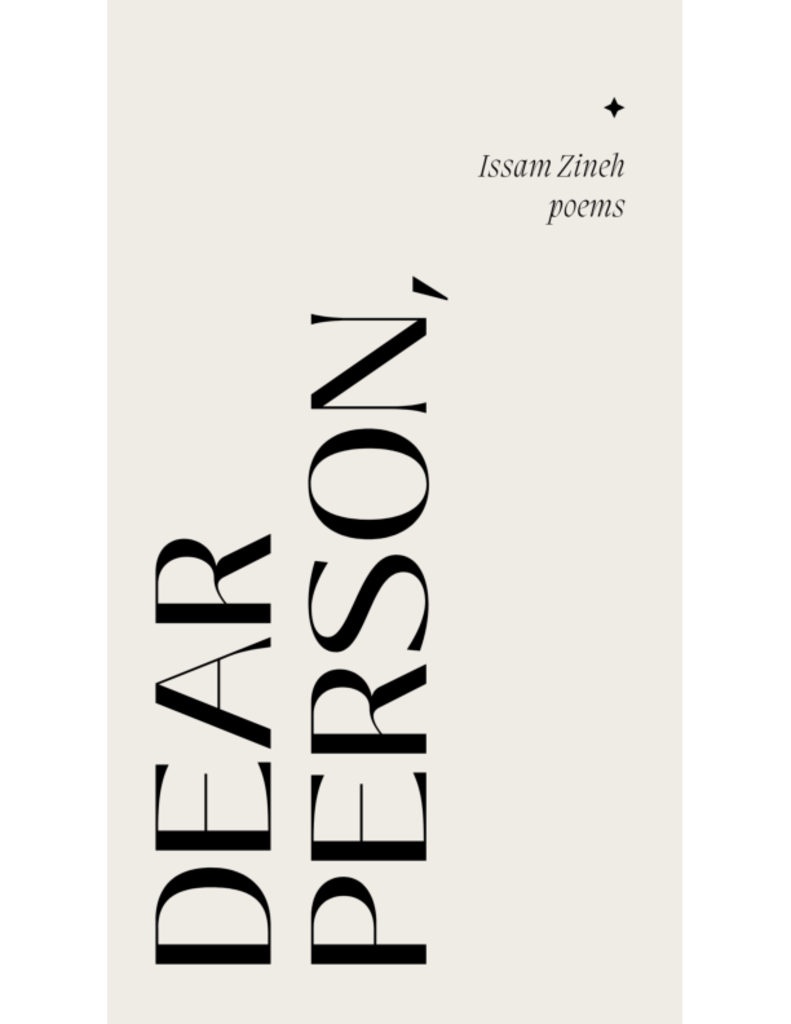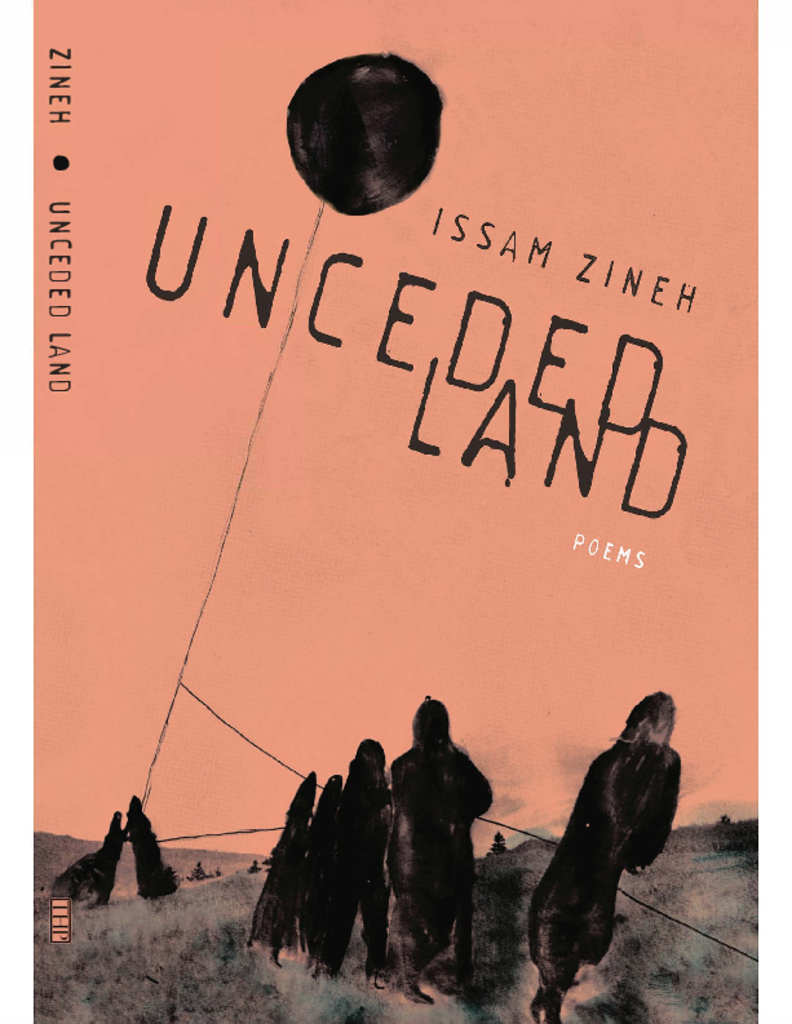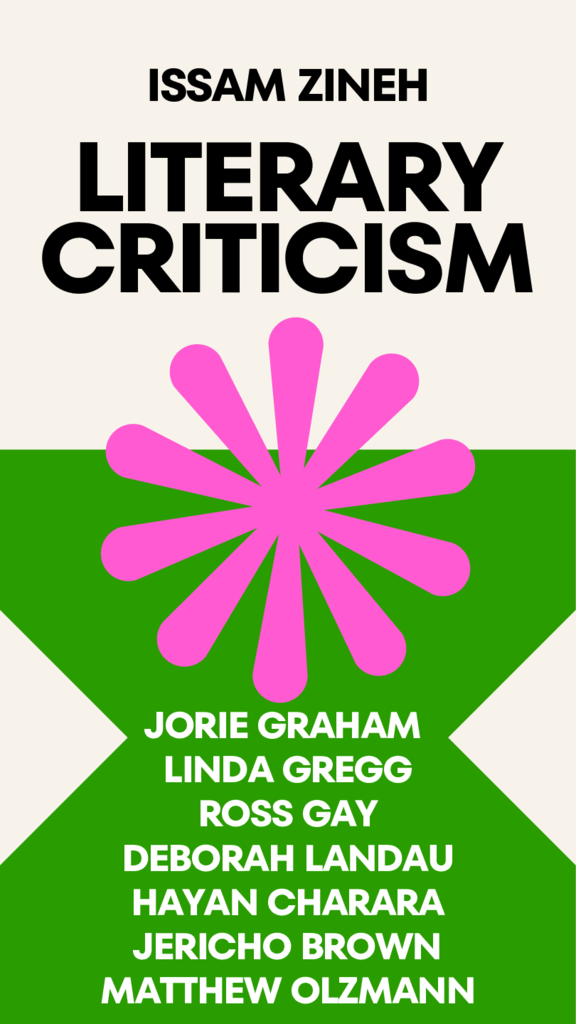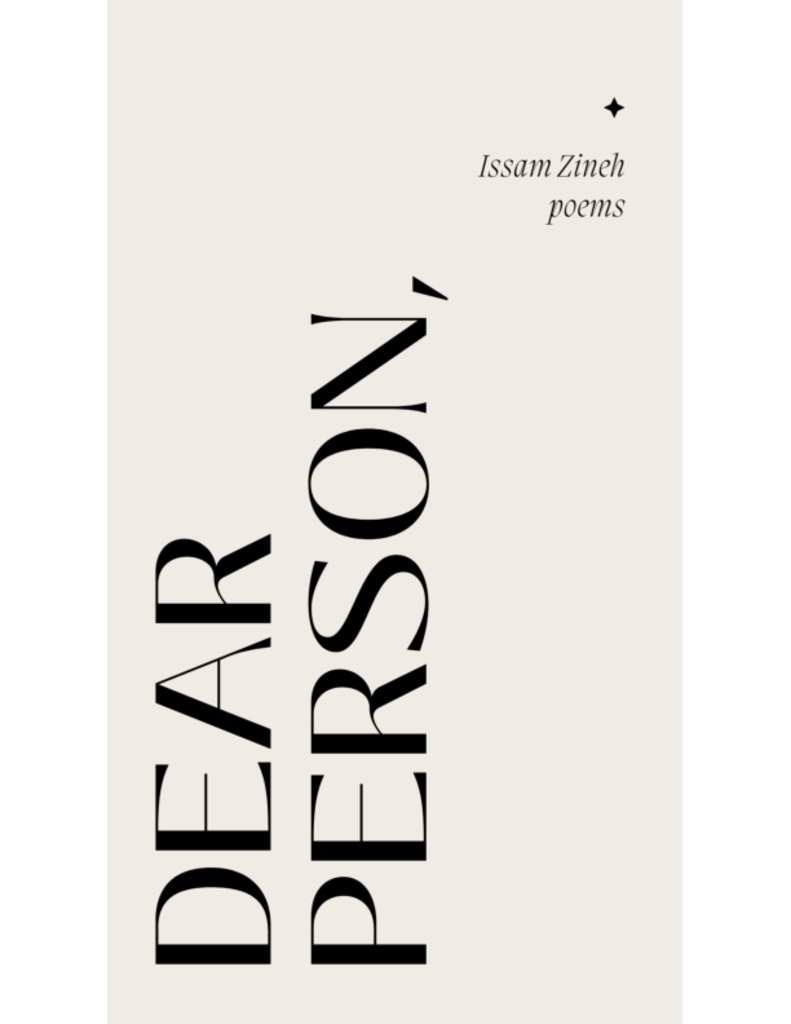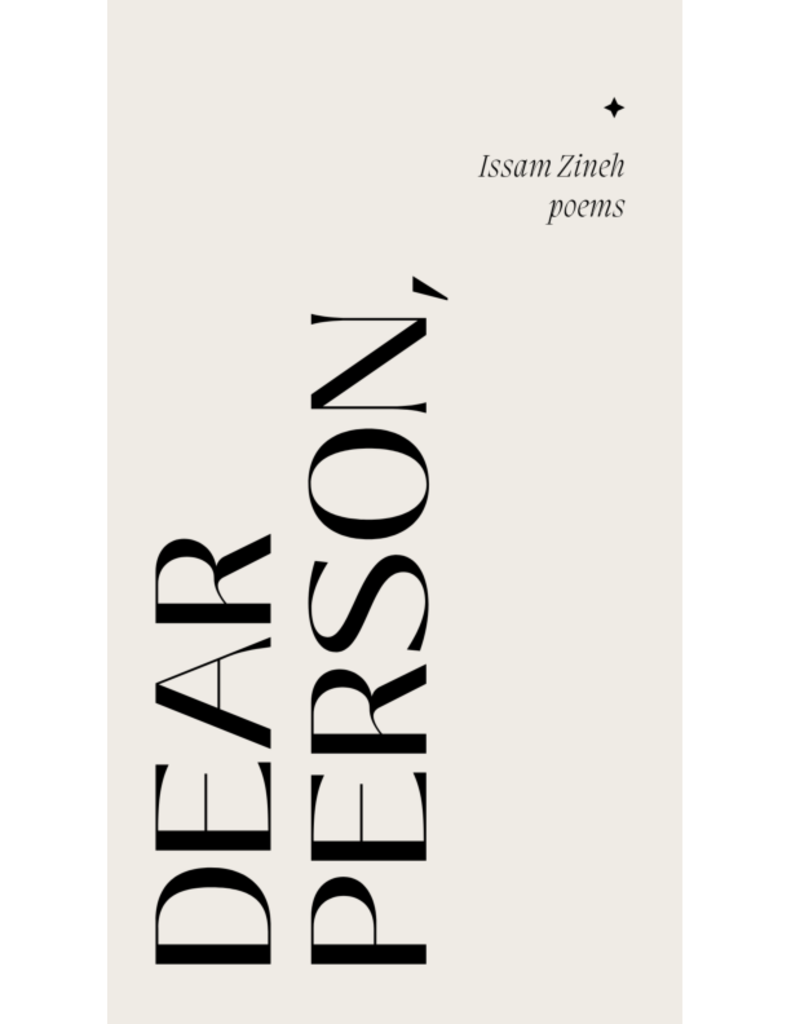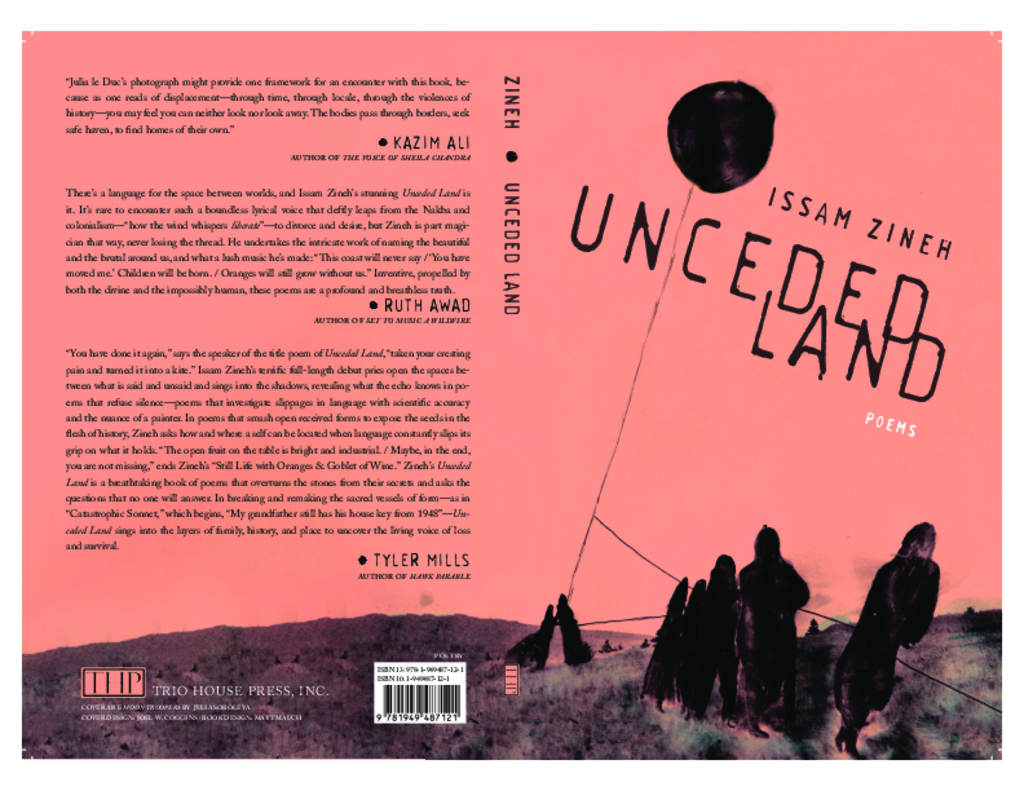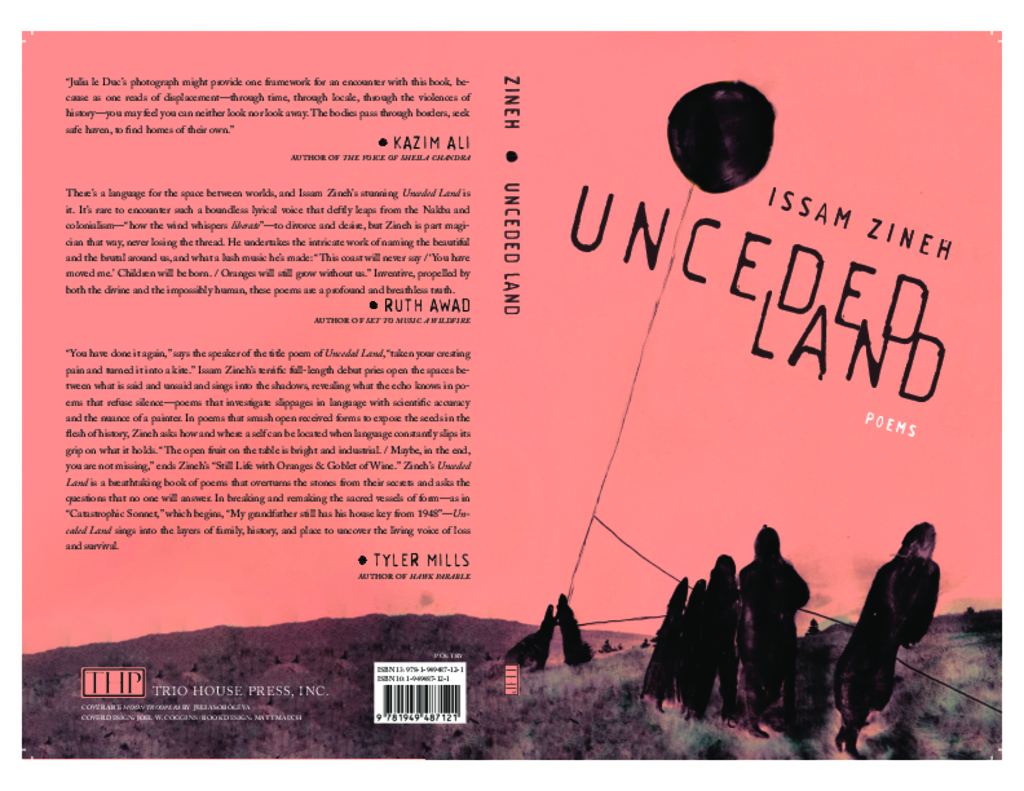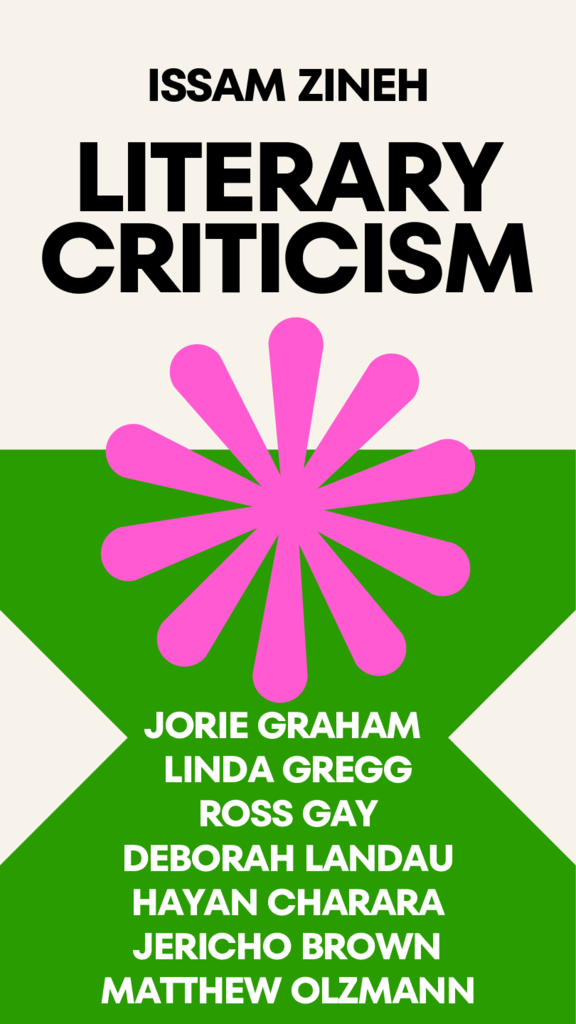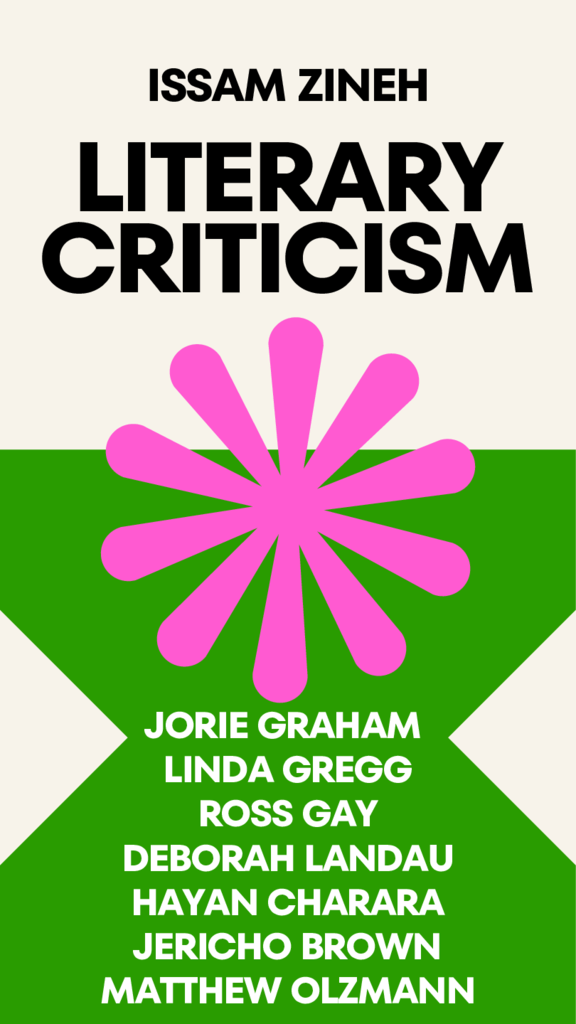Unceded Land was Issam Zineh's debut poetry collection.
Praise for Unceded Land:
There’s a language for the space between worlds, and Issam Zineh’s stunning Unceded Land is it. It’s rare to encounter such a boundless lyrical voice that deftly leaps from the Nakba and colonialism —“how the wind whispers liberate”— to divorce and desire, but Zineh is part magician that way, never losing the thread. He undertakes the intricate work of naming the beautiful and the brutal around us, and what a lush music he’s made: “This coast will never say / ‘You have moved me.’ Children will be born. / Oranges will still grow without us.” Inventive, propelled by both the divine and the impossibly human, these poems are a profound and breathless truth.
— Ruth Awad, Author of Set to Music a Wildfire
“You have done it again,” says the speaker of the title poem of Unceded Land, “taken your cresting pain and turned it into a kite.” Issam Zineh’s terrific full-length debut pries open the spaces between what is said and unsaid and sings into the shadows, revealing what the echo knows in poems that refuse silence — poems that investigate slippages in language with scientific accuracy and the nuance of a painter. In poems that smash open received forms to expose the seeds in the flesh of history, Zineh asks how and where a self can be located when language constantly slips its grip on what it holds. “The open fruit on the table is bright and industrial. / Maybe, in the end, you are not missing,” ends Zineh’s “Still Life with Oranges & Goblet of Wine.” Zineh’s Unceded Land is a breathtaking book of poems that overturns the stones from their secrets and asks the questions that no one will answer. In breaking and remaking the sacred vessels of form — as in “Catastrophic Sonnet,” which begins, “My grandfather still has his house key from 1948”— Unceded Land sings into the layers of family, history, and place to uncover the living voice of loss and survival.
— Tyler Mills, Author of Hawk Parable and Tongue Lyre
Julia le Duc's photograph might provide one framework for an encounter with this book, because as one reads of displacement —through time, through locale, through the violences of history — you may feel you can neither look nor look away. The bodies pass through borders, seek safe haven, to find homes of their own.
— Kazim Ali, Author of The Voice of Sheila Chandra

